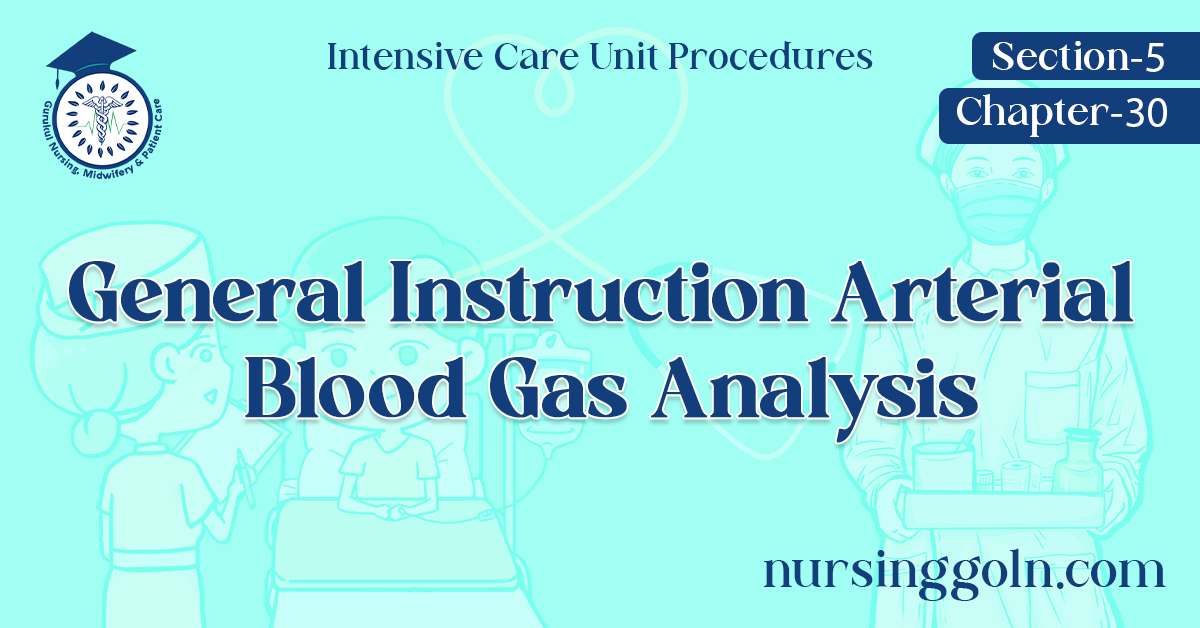Today our topic of discussion is General Instruction Arterial Blood Gas Analysis.
General Instruction Arterial Blood Gas Analysis

General Instructions
- The primary nursing responsibility is to protect the client from injury during diagnostic procedure
- Before radial puncture for obtaining an arterial specimen for ABGs, the Allen test should be performed to ascertain adequate ulnar circulation
- Critically-ill clients commonly have femoral or radial arterial catheter system from which blood specimens are drawn
- The nurse is responsible for maintaining errors in ABG analysis due to faulty specimen collection and handling
- Excessive amounts of heparin or an air bubble in the syringe will cause inaccurate results.
Client and Environment Preparation
- Explain the procedure to the client thoroughly
- Place the client in comfortable position
- Before a radial artery puncture is executed or a arterial line is inserted, perform an Allen test to ensure adequate collection to the hand
- Prepare ice and heparinized syringe
- Instruct the client about the arterial puncture, it is painful
- If the client is anxious, hyperventilation may occur, giving false reading because of CO, is blown off.
Equipment Needed
- One mL or 2 ml disposable syringe
- Disposable needles size 20 gauge
- Leur-lock for syringe
- Heparin 1:1000
- Alcohol swab
- Crushed ice in specimen bag
- Disposable gloves and disposable probes
- Arterial catheter for continuous pressure monitoring
- Waterproof pad.
Obtaining Sample by Direct Puncture
- Use heparinized syringe and aseptic technique
- Arterial puncture may be from the radial, branchial, femoral or dorsalis pedis artery
- Assess distal pulses for vascular insufficiency before and after
- Locate artery by feeling for pulsation with two fingers.
- Leave gap between fingers and insert needle into artery .

- Allow syringe to fill under arterial pressure.
- Remove needle quickly and press on site for 5 minutes before applying dressing
- When using arterial line, turn off three way tap.
- Discard 2-10 ml of blood. Allow syringe to fill under arterial pressure
- Sample should be analyzed within ten minutes at room temperature or placed on ice and analyzed within 30 minutes.
